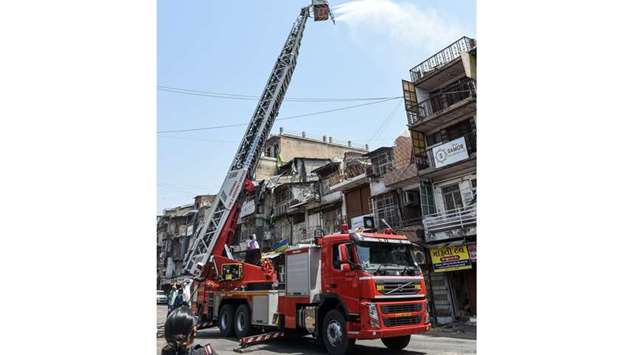India will explore blood plasma therapy for Covid-19 using the immune power gained by a recovered person to treat a sick person.
The Sree Chitra Tirunal Institute for Medical Sciences and Technology (SCTIMST) in Thiruvananthapuram, Kerala, has got the approval for taking a bold step to provide innovative treatment to patients suffering from Covid-19, a senior official said.
Technically called “convalescent-plasma therapy”, the treatment aims at using the immune power gained by a recovered person to treat a sick person.
According to a statement by Ministry of Science & Technology, the Indian Council for Medical Research (ICMR), the top authorising body in India, has given approval to the SCTIMST for carrying out the novel treatment.
“We have applied for age cutoff to the Drug Controller General of India (DCGI) for permissions for relaxation of the norms for blood donation,” Asha Kishore, director of SCTIMST said in the statement.
The therapy, like blood transfusion, harvests the antibody from a recovered patient and ingest into a sick person.
Helped by the antibody, the immune system mounts a robust combat on the virus.
“Initially, we will try in a small number of patients. At present it is permitted as an experimental therapy for restricted use for severely affected patients only. We will be getting the informed consent before they are recruited. This will be conducted as a clinical trial,” said Kishore.
“Covid clinics of five medical college hospitals will be partnering,” she said.
In this procedure, blood is drawn from a person who has recovered from Covid-19. The serum is separated and screened for virus-neutralising antibodies.
Convalescent serum - the blood serum obtained from one who has recovered from an infectious disease and especially rich in antibodies for that pathogen - is then administered to a Covid-19 patient.
The sick acquires passive immunisation.
This therapy is not simple to harness, primarily due to the difficulty of obtaining significant amounts of plasma from survivors.
In diseases like Covid-19, where most of the victims are aged, and suffering from other medical conditions such as hypertension, diabetes, and so on, not all recovered patients can volunteer to donate blood.
According to Neha Gupta, Infectious Diseases Consultant at Fortis Memorial Research Institute in Gurugram, immunity develops based on the type of severity of Covid-19 infection.
The immunity develops early in asymptomatic or persons with mild symptoms, while it develops later in severe and critically-ill patients, she explained.
The concept of this therapy dates back more than a century, when similar treatments were used during the Spanish flu pandemic of 1918, a diphtheria outbreak in the 1920s, a flesh-eating bacteria epidemic in the 1930s, and during other outbreaks of infectious diseases. It was tried most recently for Ebola.
The effectiveness of the therapy has varied.
The process for donating plasma is similar to donating blood and takes about an hour, according to Houston Methodist which became the first academic medical centre in the US to transfuse donated plasma from a recovered Covid-19 patient into a critically ill patient.
Plasma donors are hooked up to a small device that removes plasma while simultaneously returning red blood cells to their bodies.
Unlike regular blood donation in which donors have to wait for red blood cells to replenish between donations, plasma can be donated more frequently, as often as twice a week, it said.
>>The Ordnance Factory Board (OFB) has come up with a solution of two-bed tents for screening, isolation and quarantine for Covid-19 patients.
Fifty such tents have been sent to Arunachal Pradesh.
OFB came up with a cost effective solution for isolation wards with the manufacture of two-bed tents with medical equipment for screening, isolation and quarantine.
OFB is playing an important role in the fight against coronavirus, a statement by the Defence Ministry said.
These special tents can be used for medical emergency, screening, hospital triage and quarantine purposes.
These tents with a floor area of 9.55sq m are made up of waterproof fabric, mild steel and aluminium alloy.
The tents can be set up in any place and terrain and help in creating additional facilities other than those in conventional hospitals within a short period of time.
The Ordnance Equipment Factory in Kanpur has manufactured these tents.

Firefighters use a crane to spray disinfectant in Ahmedabad yesterday.
